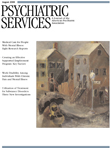The scientific evidence for the benefit of regular exercise for physical health comes to us in major medical journals and the popular press daily. Those who exercise can prevent and decrease the ravages of diabetes, heart disease, and some types of cancer. What about the benefit of exercise to our brains? John Ratey, with the assistance of Eric Hagerman, takes us on a comprehensive tour of the effects of regular exercise on cognition, learning, memory, and the symptoms of many common psychiatric conditions in Spark: The Revolutionary New Science of Exercise and the Brain.
We learn about the effect exercise has on how we experience stress and on hormonal changes throughout the life cycle and how exercise may be the closest we come to finding the "fountain of youth." The inspirational opening chapter presents a comprehensive physical activity program for all students, not just athletes, in two very different school systems. The authors show us how it is possible to simultaneously battle the epidemic of childhood obesity while dramatically improving attention, behavior, and learning.
Designed to be read by the general public, each chapter contains anecdotes, life stories, and personal experiences of the authors. The authors also summarize vast amounts of scientific literature to explain why and how exercise has such a dramatic impact on the brain. They soundly debunk the myth that our brains contain a fixed number of neurons that can only deteriorate with age. In fact, we have the capacity to grow and enhance new neuronal connections at virtually any age. The neuroscience can be somewhat dense and a challenge to follow at times—but well worth the effort. In future editions, an occasional picture or diagram to help identify basic brain regions would be helpful.
In addition to the underlying science and case examples, each chapter is filled with practical advice regarding the type and amount of aerobic exercise that is helpful in a given condition. Weight training and stretching, such as yoga and Pilates, are included, but most studies have looked primarily at the effect of aerobic activity on the brain. Essentially any physical activity is good, and the more, the better. Mental health professionals should be prescribing regular exercise for all patients, in addition to, and often in place of medication for anxiety and depression. Focus and attention can be dramatically improved in attention-deficit hyperactivity disorder through exercise. A daily practice of sustained physical activity can be transformative for those in the early stages of addiction recovery. The authors argue that regular physical exercise is the single most valuable health practice that individuals can engage in, regardless of age or socioeconomic status. The benefits are wide ranging, with few or no side effects. This very readable volume is valuable to patient and health care practitioner alike. As Dr. Ratey says, "Welcome to the Revolution."

